Gender, Sexuality, and
Space Culture
Radical Cultural Studies
Series Editors: Fay Brauer, Maggie Humm, Tim Lawrence, Stephen Maddison, Ashwani Sharma and Debra Benita Shaw (Centre for Cultural Studies Research, University of East London, UK)
The Radical Cultural Studies series publishes monographs and edited collections to provide new and radical analyses of the culturopolitics, sociopolitics, aesthetics and ethics of contemporary cultures. The series is designed to stimulate debates across and within disciplines, foster new approaches to Cultural Studies and assess the radical potential of key ideas and theories.
Sewing, Fighting and Writing: Radical Practices in Work, Politics and Culture, Maria Tamboukou
Radical Space: Exploring Politics and Practice, edited by Debra Benita Shaw and Maggie Humm
Science Fiction, Fantasy, and Politics: Transmedia World-Building Beyond Capitalism, Dan Hassler-Forest
EU, Europe Unfinished: Europe and the Balkans in a Time of Crisis, edited by Zlatan Krajina and Neboja Blanua
Political Interruptions, Unauthorised Modernities, Iain Chambers
Austerity as Public Mood: Social Anxieties and Social Struggles, Kirsten Forkert
Metamodernism: Historicity, Affect, Depth, edited by Robin van den Akker, Alison Gibbons and Timotheus Vermeulen
Affect and Social Media: Emotion, Mediation, Anxiety and Contagion, edited by Tony D. Sampson, Stephen Maddison and Darren Ellis
Gender, Sexuality, and Space Culture, Kat Deerfield
Writing the Modern Family: Contemporary Literature, Motherhood and Neoliberal Culture, Roberta Garrett (forthcoming)
The Male Body in Digital Culture, Jamie Hakim (forthcoming)
Gender, Sexuality, and
Space Culture
Kat Deerfield

London New York
Published by Rowman & Littlefield International, Ltd.
6 Tinworth Street, London SE11 5AL
www.rowmaninternational.com
Rowman & Littlefield International, Ltd. is an affiliate of
Rowman & Littlefield
4501 Forbes Boulevard, Suite 200, Lanham, Maryland 20706, USA
With additional offices in Boulder, New York, Toronto (Canada), and London (UK)
www.rowman.com
Copyright 2019 by Kat Deerfield
All rights reserved. No part of this book may be reproduced in any form or by any electronic or mechanical means, including information storage and retrieval systems, without written permission from the publisher, except by a reviewer who may quote passages in a review.
British Library Cataloguing in Publication Information
A catalogue record for this book is available from the British Library
ISBN: HB 978-1-78660-765-2
ISBN: PB 978-1-78660-766-9
Library of Congress Cataloging-in-Publication Data Is Available
ISBN 978-1-78660-765-2 (cloth: alk. paper)
ISBN 978-1-78660-766-9 (pbk: alk. paper)
ISBN 978-1-78660-767-6 (electronic)
 TM The paper used in this publication meets the minimum requirements of American National Standard for Information Sciences Permanence of Paper for Printed Library Materials, ANSI/NISO Z39.48-1992.
TM The paper used in this publication meets the minimum requirements of American National Standard for Information Sciences Permanence of Paper for Printed Library Materials, ANSI/NISO Z39.48-1992.
Acknowledgements
This book began its life in 2011 as a doctoral thesis at the Centre for Critical and Cultural Theory at Cardiff University. I have been fortunate throughout the stages of this research to have the support of many people who have my deepest gratitude.
I am very grateful for the guidance and support I received from Chris Weedon as my supervisor while completing my doctoral research. I was then fortunate to have Maureen McNeil and Cindy Carter as examiners for my viva, and their reflections on the thesis and suggestions for improvement were invaluable. I am additionally thankful to Maureen for providing extremely helpful feedback on the proposal for this book.
I am deeply indebted to Maggie Humm, whose support and encouragement were vital to the creation of this book. I thank the rest of the Radical Cultural Studies team for their support, and especially Debra Benita Shaw for her suggestions on the proposal and her encouragement of my work. I am also grateful to Sherryl Vint who provided proposal feedback which was both helpful and encouraging. Thank you to the team from Rowman & Littlefield International, and especially Natalie Linh Bolderston for her help and guidance.
During the writing of this book I was lucky to be part of the School of Social Sciences at Cardiff University, and I am grateful for the support of colleagues there. I am thankful to Sophie Hallett for more things than I can list, but especially for believing in me and for introducing me to critical avenues that have greatly enriched my understanding of the core theoretical threads of this book. I am deeply grateful to Teresa de Villiers for her kindness and encouragement throughout the past several years.
Andy Eicher has been an irreplaceable source of personal and scholarly backing for over fifteen years, and he provided instrumental feedback on many iterations of this book. David Andrew Griffiths also provided enormous support for me and for my work, including feedback on several drafts. Thank you to Lemon Cottrell, Hector Roddan, Kate Boddington, Amo King, Rachel Dawson and Bethan Dawson, who have all been generous with their friendship and their perspectives on everything from feminist theory and activism to Latin etymology to reading and writing suggestions, and so much in between. I am grateful to Sam Hickman for encouraging me and keeping me humble and for giving me an outlet to talk about gender and sexuality in space. And there will never be enough space to thank Rob Callaghan for how much he has supported me and this book.
Finally, I am thankful to Frank Pietronigro for his kindness in agreeing to be interviewed by me when I was an exuberant PhD student. I am also thankful that he has put his art into this universe, for me and the rest of us.
Introduction
Heavenly Bodies
In 1969, Neil Armstrong set foot on the lunar surface and earned the title of first man on the Moon. In the five decades since, this honour continues to hold great significance in public consciousness so much so that a 2018 Armstrong biopic only needed to be called the truncated First Man. Alongside the enduring resonance of Armstrongs distinction is an also-distinct lack of comparable firsts. Fifty years on, there is still no first woman on the Moon. Yet the concept of the first woman on the Moon appears in many cultural contexts, and has done so since before the dawn of the space age. To me, this seems emblematic of the larger context of women in space culture.
The honorary title of first woman on the Moon has been granted by the University of Utrecht to Genevive de Laistre, wife of the astronomer Giovanni Domenico Cassini, whose work informed the development of early maps of the lunar surface.
I have another suggestion for this distinction. I draw the subtitle of this introduction from an artefact which travelled aboard the Apollo 12 lunar mission in 1969. The Apollo 12 ground crew had hidden several photos of nude women among the checklists and supplies used during the mission, intended as a surprise for the astronauts. One of these photos received particular attention in 2011 when it was sold at an auction which received substantial press coverage; the photo, from a 1969


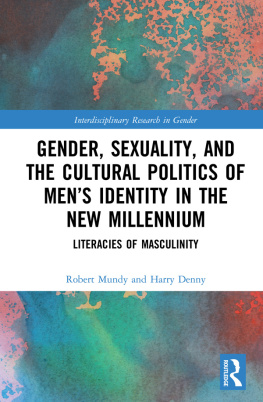
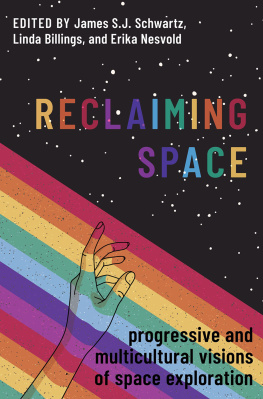
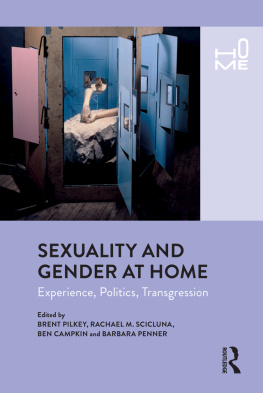
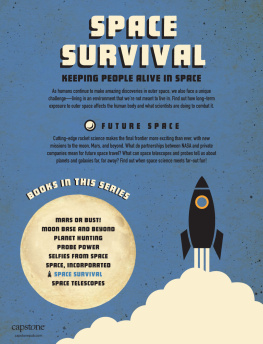
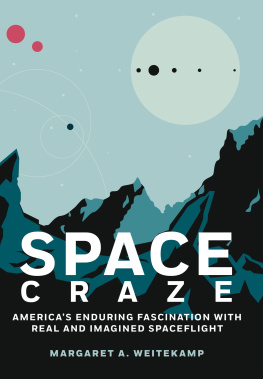

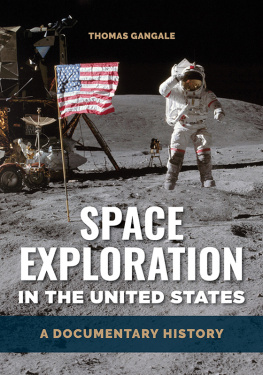

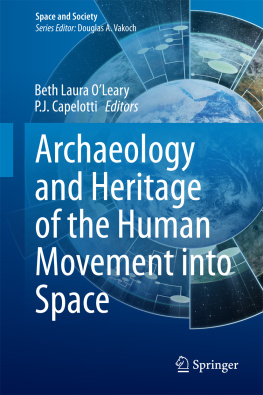

 TM The paper used in this publication meets the minimum requirements of American National Standard for Information Sciences Permanence of Paper for Printed Library Materials, ANSI/NISO Z39.48-1992.
TM The paper used in this publication meets the minimum requirements of American National Standard for Information Sciences Permanence of Paper for Printed Library Materials, ANSI/NISO Z39.48-1992.